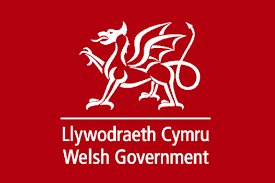Government guidance to drive 5G and fibre deployment
DCMS and MCHLG updated valuation guidance to facilitate siting of digital infrastructure
Digital Infrastructure Minister Matt Warman and Local Government Minister Simon Clarke have today written to local authorities setting out how they can help boost gigabit broadband rollout and 5G mobile coverage, pointing to new government advice on land access and valuations. The advice aims for quicker deals that grant access for new digital infrastructure, such as 5G masts and full fibre broadband cabinets on public land, and with reasonable rents attached.
While councils are obliged to get ‘best value’ when agreeing land access agreements, non-monetary benefits such as enhanced connectivity for residents to work from home and SMEs to trade online, should be taken into account, as highlighted in our report ‘Impact at a local level of full-fibre and 5G investments’.
The ministers point to Cambridgeshire and Kent as excellent examples of local authorities working effectively to encourage next-generation gigabit broadband networks. The West Midlands 5G project, part of the Government’s £200 million 5G Testbed and Trials programme, is cited as having successfully addressed some of the challenges councils face when deploying 5G technology.
The West Midlands also is one of the areas in the country with the highest available coverage of gigabit capable broadband. Others include Kingston Upon Hull, Dunbartonshire, Reading, Edinburgh, Southampton and Liverpool.
Setting out the facts on 5G mobile technology
Alongside the new guidance, BSG welcomes the joint Government and Ofcom guide to 5G mobile technology providing a plain English guide for local authorities to tackle misinformation about 5G safety, and the benefits that the next generation of mobile technology will bring. The aim is to equip local councils to give people the facts and tackle disinformation about 5G, following recent attacks on telecoms engineers and equipment during the COVID-19 pandemic.
Public Health England says 5G should have ‘no consequences to public health’. Ofcom has also been measuring the levels of electro-magnetic radiation emitted by 5G masts around the country, and in all cases has found the levels to be a small fraction of those allowed by international safety guidelines.
Today’s announcements also include encouragement from government for local councils to work with the DCMS Barrier Busting Task Force, which is charged with removing the obstacles to rollout. BSG also welcomes the inclusion of one of our earlier recommendations for ‘Digital champions’ to be appointed at a local level, to ensure LAs have a cohesive digital infrastructure strategy across multiple teams, encouraging a more joined-up approach between highways, legal, estates and digital teams.





